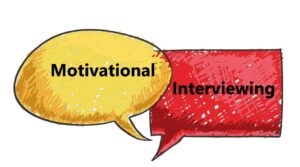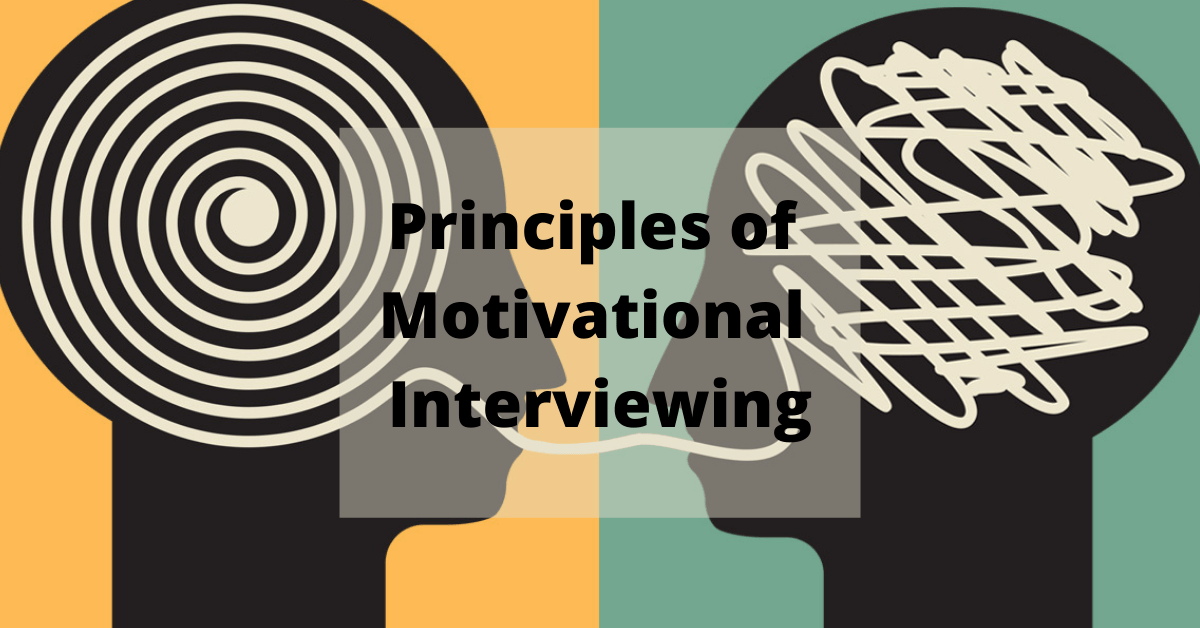Ever wonder how to encourage someone to change their behavior? If you are a health care professional, then motivational interviewing is the best way for you to do so. This technique focuses on the individual’s personal strengths and encourages them to make decisions that will help them achieve their goals. In this blog post, we will discuss what motivational interviewing is and why it can be so effective in helping people create positive changes in their lives.
Contents
What Is Motivational Interviewing?
 Motivational interviewing is a counseling technique that helps people with addictions and other behavioral health problems change their behavior. This is on the idea that people are more likely to make changes if they are motivated to do so.
Motivational interviewing is a counseling technique that helps people with addictions and other behavioral health problems change their behavior. This is on the idea that people are more likely to make changes if they are motivated to do so.
This means that motivational interviewing is a collaborative process, in which the counselor and client work together to identify and resolve any barriers to change. Motivational interviewing can also help in conjunction with other types of interventions, such as cognitive-behavioral therapy (CBT).
Working of Motivational Interviewing
These are some of the steps in the motivational interviewing process.
Identify Goal
When using motivational interviewing, the counselor first helps clients determine what their goals are for treatment. This is important because it allows the client to clarify why he or she wants to make changes and can help them identify any barriers that might get in the way. It may be helpful to write down these goals so they stay top-of-mind throughout therapy sessions.
Clarify Ambivalence About Change
This step involves exploring any concerns a person has about changing his or her behavior. For example, if someone fears that giving up drugs will leave him or her socially isolated, this issue should be addressed during counseling sessions. During this stage of therapy, there may also be an assumption that change is possible.
Elicit Change Talk
The third step in the process is to help clients start talking about the changes they want to make. This includes identifying any reasons why they might be hesitant to make a change, as well as discussing how making a change could benefit them in the long run. It’s important for counselors to listen carefully and not push clients too hard, since this can backfire and lead to resistance.
Provide Support And Feedback
After eliciting change talk from their clients, counselors should provide feedback and support. This means affirming any positive statements made by clients and helping them develop a plan of action for making changes. Counselors may also need to give practical advice during this stage, such as referring clients to addiction treatment programs or other resources.
Goal of Motivational Interviewing
- The goal of Motivational Interviewing is to help people resolve any ambivalence they have about making changes, and start talking about the changes they want to make.
- The goal of motivational interviewing is to help people identify and resolve any barriers that might prevent them from making changes. By working collaboratively with their counselor, clients can develop a plan of action that will work best for them.
- Another goal is to identify any barriers that might prevent people from making changes. By working collaboratively with their counselor, clients can develop a plan of action that will work best for them.
- The last goal is to help people resolve any ambivalence they have about changing behaviors and start talking about the specific changes they want to make. This includes identifying reasons why they are hesitant to change as well as discussing how it would benefit them in long run. It’s important for counselors not to push too hard during sessions because this could cause unnecessary resistance within the client.
When To Use Motivational Interviewing?
These are some of the situations in which Motivational Interviewing may be useful:
Addiction
In addiction counseling, Motivational Interviewing can be used to help people who are struggling with drug or alcohol abuse. It can also be used to help prevent relapse in people who have already completed addiction treatment.
Weight Loss
For people trying to lose weight, Motivational Interviewing can provide support and guidance on how to make healthy changes to their diet and exercise habits.
Mental Health Disorders
Motivational Interviewing may be helpful for people with mental health conditions such as depression, anxiety, and bipolar disorder. It can provide support and guidance on how to make healthy changes to their diet and exercise habits.
Smoking Cessation
Motivational Interviewing can be useful for people who are trying to quit smoking. This approach can support them in making healthy changes by helping them identify and resolve any barriers that might prevent them from taking action.
Principles of Motivational Interviewing

These are some of the principles of Motivational Interviewing as identified by the developers:
Expressing Empathy
Counselors should express empathy for their client’s situations and feelings. This can help create a positive rapport and encourage clients to open up about their thoughts and feelings.
Trying Reflective Listening
Counselors should listen attentively to what their clients are saying, and reflect back on what they have heard in order to ensure that both parties are understanding each other.
Expressing Open-Mindedness
Counselors should have an open mind towards their clients’ ideas and opinions, even if they don’t agree with them. This will help build trust between counselor and client.
Avoiding Argumentation
Arguing with clients can lead to resistance and decreased motivation. Counselors should instead focus on exploring different points of view and helping clients to come to their own conclusions.
Supporting Self-Efficacy
Counselors should help build up their clients’ confidence in their ability to make changes. This can be done by providing encouragement and positive feedback, as well as assisting them in setting realistic goals.
Cooperating with Resistance
Even if a client is resistant to making changes, counselors should still work collaboratively with them in order to find a way forward. Pushing too hard could cause unnecessary resistance within the client.
Benefits of Motivational Interviewing

These are some of the benefits of Motivational Interviewing for counselors and clients:
Offers Flexibility
This approach offers flexibility in terms of the client’s readiness to make changes. It can be used at any point during treatment, regardless of whether the person is resistant or enthusiastic about making changes.
Provides Space for Clients’ Own Ideas
Clients are given space within sessions to identify their own ideas and goals instead of being told what they need to do by their counselor. This increases motivation since individuals feel more empowered when they come up with solutions on how they want to change themselves.
Promotes Collaboration
Working together as a team helps build rapport between both parties while also encouraging trust and positive relationships. A sense of mutual respect is also fostered, which can be beneficial for future counseling sessions.
Helps To Address Barriers To Change
The goal of Motivational Interviewing is to help clients identify and resolve any barriers that might prevent them from making changes. This can be done by exploring different options and helping clients to find their own solutions.
Eases Withdrawal Symptoms
For some people, withdrawal symptoms can be a major obstacle when trying to make changes. In such cases, counselors can use Motivational Interviewing to provide support and guidance on how to manage these symptoms.
Helps To Prevent Relapse
Motivational Interviewing can also be used to help prevent relapse in people who have already completed addiction treatment. It can provide support and guidance on how to make healthy changes to their diet and exercise habits.
Creates a Sense of Engagement
When used correctly, Motivational Interviewing can create a sense of engagement within the client. This helps keep them motivated and invested in their treatment plan. This means that they are more likely to follow through with their goals and achieve lasting results.
Side-Effects of Motivational Interviewing

There are some potential side-effects of Motivational Interviewing that counselors should be aware of:
May Be Time Consuming
This approach can take longer than other treatment methods, which may not always work for inpatient clients. Counselors need to be prepared to spend time explaining the process and encouraging their clients throughout each session.
Limited Support
Motivational interviewing is less helpful when it comes to addressing more severe mental illnesses like clinical depression or bipolar disorder. It also cannot replace medication in cases where this might be needed. These types of issues will likely require different approaches such as Cognitive Behavioral Therapy (CBT).
May Require Require Skill And Experience
Counselors who have a lot of with motivational interviewing are able to use it more effectively. This is not a skill that anyone can learn overnight, so those who are just starting out in counseling may want to wait before using this approach.
May Need To Be Adjusted
Counselors need to be flexible and open to making changes when using Motivational Interviewing. This approach may not help all clients, as it can vary depending on their age or background. The counselor’s own communication style will also impact the way they work with each client too. These issues can make counselors more mindful about how they communicate with people who come from different backgrounds than themself.
May Cause Resistance
Counselors should know that there is a possibility that some clients may not respond well to Motivational Interviewing. This approach can be confrontational and challenging, so it’s important to be respectful of the client’s feelings at all times.
Can Cause Confusion
Some people may find themselves feeling confused after receiving a session of Motivational Interviewing. Counselors need to ensure that they are clear about what they expect from their clients and help them to understand the goals of each session. Clarifying any confusion early on can prevent misunderstandings from developing later on.
Conclusion
Motivational Interviewing is very helpful and effective in helping people make changes within various areas of their lives. It offers flexibility and promotes collaboration between the counselor and client. The benefits of this approach include increased motivation, empowerment, and self-efficacy. If you are considering using Motivational Interviewing in your work with clients, it is important to be familiar with its principles. With practice, you will be able to use this approach to help your clients achieve their goals.
If you are looking for affordable Online Counseling MantraCare can help: Book a trial therapy session


